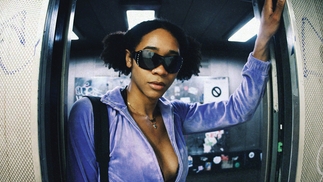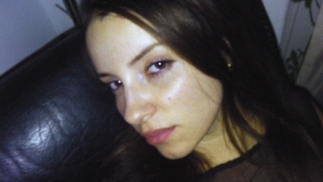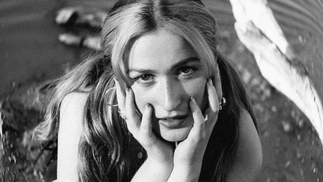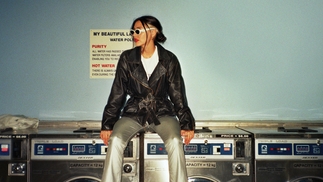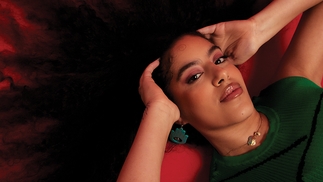Recognise: Nite Fleit
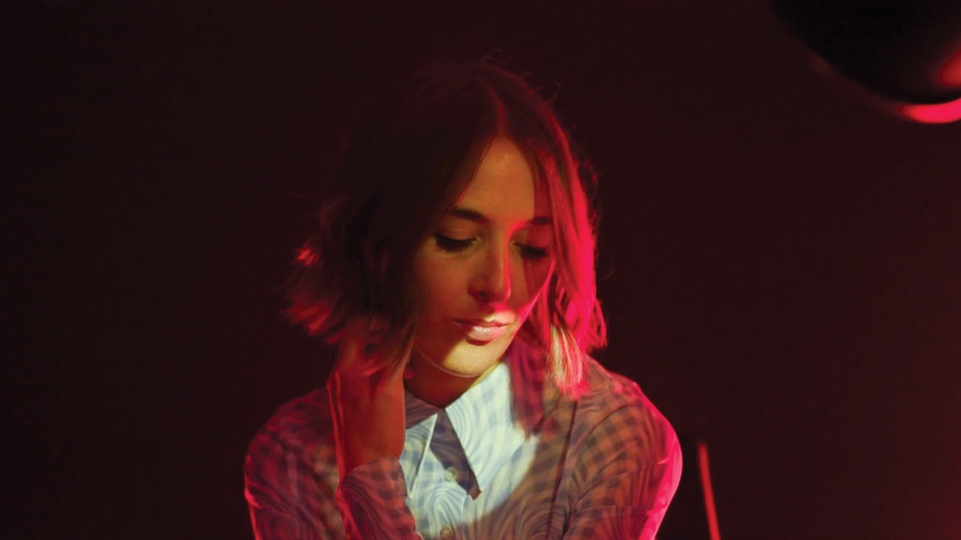
Italy-based, Australia-born DJ and producer Nite Fleit has made her name with tough-as-nails electro, but her recently-released debut album reveals a more emotional side. Alongside a storming mix for the Recognise series, she speaks to Claire Francis about her formative years in Melbourne, her natural flair for DJing, and how making music helps with her ADHD
There’s lots of smiles and laughter when DJ Mag speaks to Alysha Fleiter, and the 34-year-old Australia born, newly Italy-based DJ and producer certainly has plenty to be cheerful about just now.
It’s the week before her debut album ‘Day Fleit / Nite Fleit’ drops on Mall Grab’s Steel City Dance Discs label, the culmination of a rapid rise that has seen her become both a key player of the UK club circuit and a respected producer with a reputation for unique, genre-blending takes on classic rave sounds.
Though she only began making her own tunes as recently as 2016, with her debut EP arriving on Steel City Dance Discs in 2018, Nite Fleit’s natural ability shines through on her new 12-track LP. ‘Day Fleit / Nite Fleit’ is an album of contrasts, split into two distinct halves and two very different atmospheres. With no front or back cover, the two discs can be played in either order, depending on the listener’s mood. While ‘Nite Fleit’ spans the hard-as-nails, peak-time electro, breaks and techno territory she’s made her name with, on ‘Day Fleit’, a softer side of Fleiter emerges. Emotive synth-driven tracks like ‘Overload’ and the gorgeous ‘Like I Used To Be’ employ dreamy melodies, heart-tugging chords, arpeggiated acid lines and softly spoken lyrics.
“I’ve always had that idea in my head if I ever did an album,” she says. “It just made sense to me to do it that way. And I realised the other day that the track ‘Partly Sunny’ from my first EP is kind of a ‘Day Fleit’ track. It’s the B2 track. When I started producing, I wanted my music to sound like the tracks that I play out at clubs. So if I’d made those kinds of emotional tracks, I’d put them on as B2s.”
Fleiter might be best known for her dark and tough dancefloor-ready cuts, but her formative years reveal a myriad of sonic influences. Although she cut her teeth as a DJ on Sydney’s underground club scene, she grew up in Lilydale in Melbourne’s outer suburbs, where the electronic music landscape was a very different beast to the one she knows today.
“I loved listening to the radio back then,” she says. “They did DJ mixes of all the songs I liked when I was 15. I was obsessed with Ja Rule and Ashanti. My friend and I used to listen to the mixes together over the phone. And I would wait and clock which song was coming next. I’d shout them out, like ‘That’s P Diddy coming in!’
“I had a fake ID and would go to these suburban nightclubs called Daisy’s and Dakota. That was where I started listening to electronic music. Then I started going to a mega club in St Kilda in Melbourne, called Twister. They had a main room where ‘celebrities’ like Big Brother contestants would go. But they also had a trance room. There would be a track playing whenever I walked in — I don’t think it was every single time I walked in, but it felt like it — it was a trance remix of ‘Paint It Black’ by the Rolling Stones. It was fucking scary,” she laughs.
Then came nights in Melbourne’s mid-2000s indie electroclash heyday, “parties like Click Click, and clubs like Honky Tonks, which later became Third Class”, she says. “I actually DJed once in Third Class, that was probably my first ever DJ experience. I went there every single week for like three years. One Love was also really good. They had these online forums that during the week were like a smoking area where everyone just chatted.”
Being in that environment is what led Fleiter to discover her innate ability as a DJ, she explains. “From the moment my friend taught me how to be a DJ, when I was going to Third Class, I knew I was good,” she says matter-of-factly. “He gave me some records and said, ‘Just get that one in time with that one’, and it came really easily, and he was like, ‘Oh my God Fleitsy, that was really good’. It just came naturally.”
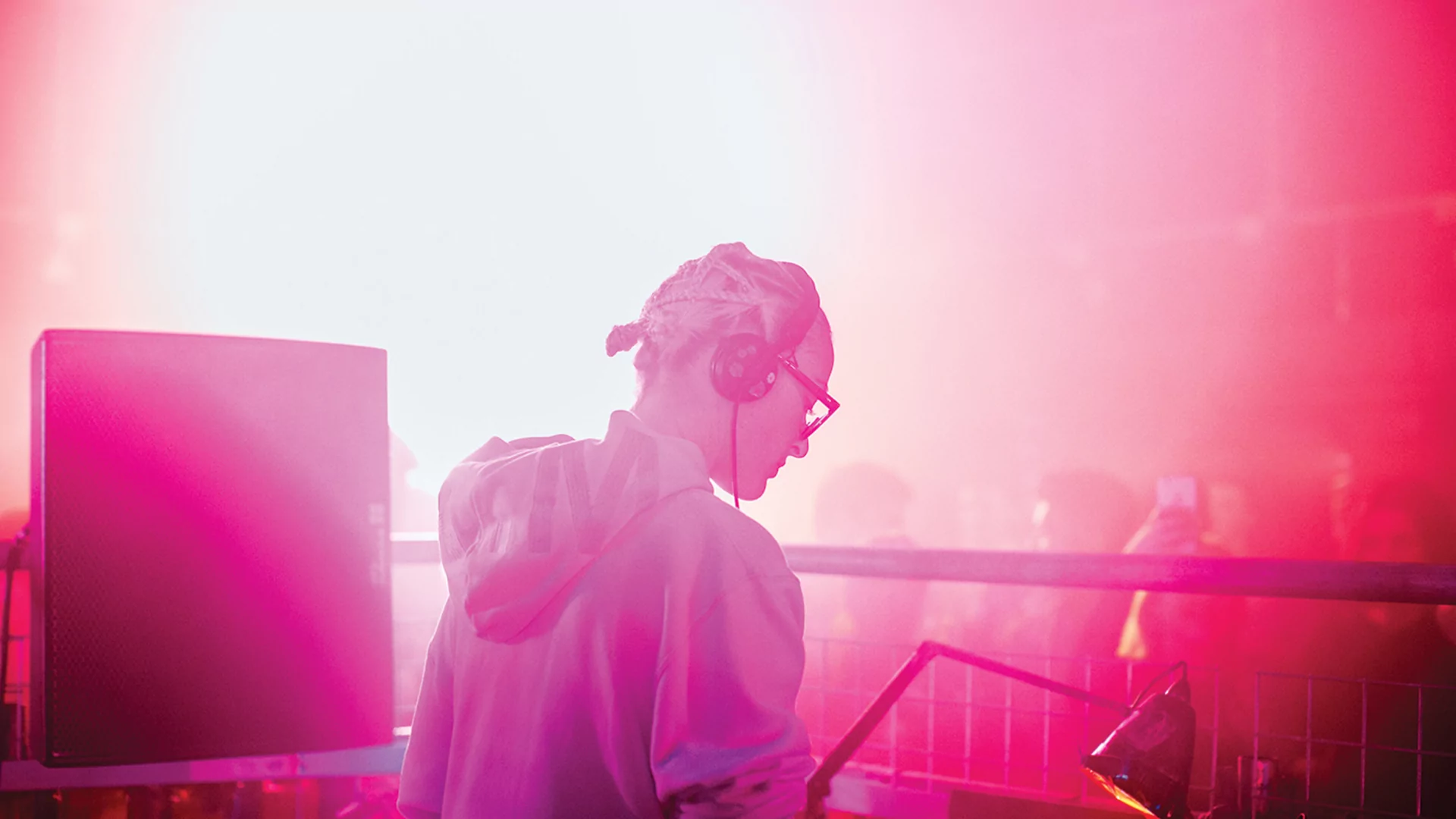
Fast-forward to the present, and her trajectory as a selector continues to climb, having recently played her first gigs in LA and Vancouver and amassing fans around the globe. But life is full of ups and downs, and the contrasting moods of her album reflect the realities and challenges of the past two years. “I don’t really want to talk about being sad,” she says candidly, “but I was not feeling great when I made all the ‘Day Fleit’ stuff and that’s why it sounds quite emotional. And making music is how I process stuff.
“The chord progressions are sad,” she continues. “There are sad chords throughout the whole thing. I can’t even make any of that stuff at the moment because I’m not sad!”
Despite her prolific work rate — the LP began as an enormous pool of demos, which were whittled down to a longlist of 33 tracks — Fleiter says she isn’t immune to creative blocks. “Do you watch Bob’s Burgers? It is written by Amy Poehler, and it’s amazing. It’s so easy to watch because it’s so funny. Every episode has a good message. But there’s one episode where Bob has the yips. He can’t remember how to flip burgers properly. I’ve got two EPs and a couple of remixes that I’ve got to do. And I feel like at the moment I’ve got the yips too.”
When we ask what she thinks has caused this momentary mental block, she’s quick to see the funny side of the situation. “I think it’s because I spilled Coke — my favourite drink — on my Ableton Push, and I’m waiting for it to be repaired,” she laughs. “I’m sure when I get that back, I’ll feel better."
“Producing makes me feel so good throughout the whole process,” she continues. “Because of my ADHD, producing music is like my Ritalin. I didn’t produce until I was diagnosed. I didn’t even know that I was creative, up until that point. I wouldn’t have even started producing if I didn’t have my medication. I would still be in Lilydale, married to a footballer, with four kids.”
There are times, when she’s touring and things can be stressful, that she wishes there was more awareness of ADHD, “because then they would understand my reactions or responses and I wouldn’t have to explain myself”.
“It’s good to talk about it,” she says. “Hopefully it means that more people might realise, ‘Oh, that’s a bit like me’, and they can get the help and treatment they need. But I wouldn’t choose to not have it. The music that I make is basically a representation of my ADHD brain. At the end of the eighth or 16th bar, there’s always going to be some kind of change. There’s never ever going to be a long intro. I’m definitely not into ambient music.”
‘Day Fleit / Nite Fleit’ is her most revealing creative work to date, but even though Fleiter is branching out in exciting new directions, don’t expect any major deviations from her idiosyncratic, vitalising electro-focused sound any time soon. “I like to specialise in stuff. It’s not like I could make deep house or something like that. Or tech-house. Yuck, I physically feel sick thinking about that music,” she laughs.
Tracklist:
Human Rebellion ‘The World Beyond’
The Exaltics & Heinrich Mueller ‘Hologram Universe’
Data Assault ‘Black Earth (Martinelli Acid Tool Mix)’
The Exaltics & Paris The Black Fu ‘10 0seco ndstil lmidn ight (Lorenz.Orx RMX)’
YTP ‘BACK $TABBIN’
Dagga ‘Move That Junk’
Dynarec ‘Stop and Stall’
Hermeth ‘Brian's Back’
Ultradyne ‘Dyslexia’
The Exaltics ‘The Conscience Shift’
RIOT CODE ‘YA GOT!!!’
VOIRON ‘DIZZIE VOIRON’
Mani Festo ‘Testflight’
Fobos Hailey ‘Chips & Ice cream’
Lucass P ‘English Boxing (JKS Remix)’
AYZR ‘DITTR (RIOT CODE REMIX)’
Swarm Intelligence ‘Execute (Blackmass Plastics remix)’
SOD-90 ‘Vinyl Corset’
YTP ‘SRSLY?’
Umwelt ‘Dark Star Renegade’
The Prodigy ‘Timebomb Zone (RIOT CODE REMIX)’

